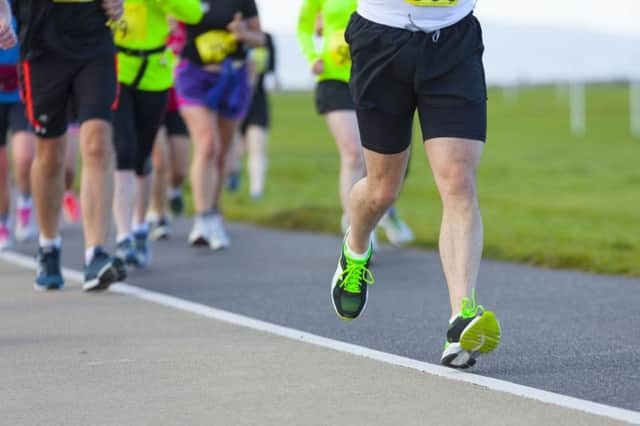Why 31 is the prime number in the energy stakes


The challenge of balancing busy working lives with family commitments has an energising effect on people at the start of the fourth decade of their lives, with 31 the optimum age,
A survey of 2,000 people by vitamin firm Healthspan also shows that Yorkshire people can expect to enjoy a second wind at the age of 55, when thoughts of retiring starts to invigorates empty nesters.
Advertisement
Hide AdAdvertisement
Hide AdPoor diet and too many late nights are among the reasons why twentysomethings are often found wanting for energy, but regular stress-busting exercise sessions in your thirties has a profound effect on health and well-being, the study found.
Psychotherapist Sally Brown said: ‘’Lifestyle does impact on your energy levels but what came through from this study is that energy is strongly affected by state of mind, and that overall attitude to life and feeling happy are our biggest energy source.
“It could explain why we feel like we have the most energy in our 30s, even though we’re also dealing with the biggest drains on our energy from work and bringing up children.
“The study also highlighted a link between stress and energy levels as we experience an energy surge in our 50s, when we are free from the stress of looking after a young family and nurturing a fledgling career.”
Advertisement
Hide AdAdvertisement
Hide AdForty one per cent of people surveyed put their high energy levels in their early 30s down to being at their happiest, and looking after themselves better, while others believe it was thanks to having young children to run around after.
One in 10 thirtysomethings even describe their energy levels as excellent, compared to just one in 20 over-50s and over-60s who said the same. It also found those in their thirties get the most exercise - an average of three times a week despite juggling family and work.
And just 12 per cent say they never exercise compared to almost one in five of those who are in their forties and one in four of over-60s.
Busy thirtysomethings also spend the most time working - an average of more than six hours a day - and are tucked up in bed by 10.26pm, earlier than any other age group.
Advertisement
Hide AdAdvertisement
Hide AdResearchers also revealed that 82 per cent of people find their energy levels start dropping the moment they have little or nothing to do.
Over three-quarters of those surveyed have moments when they feel the need to boost their energy levels slightly and especially with spring approaching as things rev up even more.
It also emerged that despite our busy and hectic lives helping to keep our energy levels high, our job is also the biggest drain on them, followed by worries/anxiety and the drain of day-to-day chores and our children.
Plus, one of the biggest energy drains is not a physical illness but depression mental illness such as depression.
Advertisement
Hide AdAdvertisement
Hide AdHealthspan’s Head of Nutrition Rob Hobson said: “Research revealed people are aware of using food, diet and lifestyle to boost their energy.
“Having a quick cup of tea or coffee is the most popular way to get a quick boost, followed by having a power nap, drinking some water, going for a walk and eating some chocolate.
“I would agree that taking a little time-out during the day, keeping well hydrated and getting outdoors are great ways to re-energise yourself during the day although I could suggest a number of other healthy snacks to maintain energy levels and avoid mid-morning and afternoon slumps.”
The top five energy drains:
1 Job
2 Worry/anxiety
3 Day-to-day chores
4 Children
5 A chronic health or mental health condition
The nation’s favourite energy boosters:
1 Cup of tea or coffee
2 Power nap
3 Drinking water
4 Walking outside
5 Eating chocolate